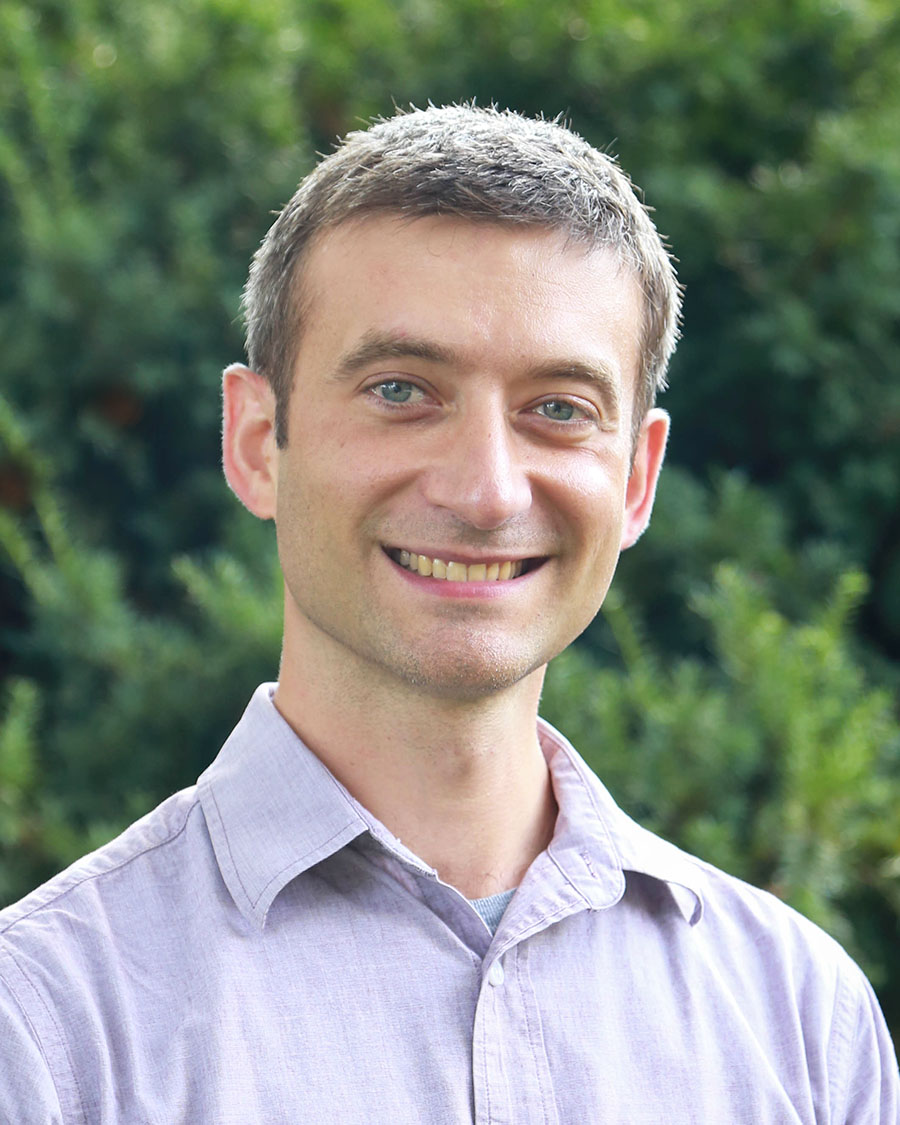AMES, Iowa – Many STEM scientists have received communication training to better engage the public on complex and controversial science, yet there often remains a disconnect between scientists’ findings and public perceptions on these topics.
An interdisciplinary team of Iowa State University researchers hopes to bridge that gap.
Dara Wald and Michael Dahlstrom, both Greenlee School faculty, and Kathleen Hunt of the Department of Agricultural Education and Studies are leading a group that’s exploring how public perceptions of scientific credibility “hinder effective communication, science-based decision-making and efforts to address society’s greatest challenges.”
“The whole idea here is to delve a little bit deeper into this idea that there is a disconnect between how scientists convey credibility and try to build trust among the public and what the public actually wants from scientists,” Wald, assistant professor and the principal investigator of the project, said.
The project, “Bridging the Gap: Understanding the Role of Trust and Credibility in Science Communication” has received support through the competitive [fall 2017 Presidential Interdisciplinary Research Seed Grant (PIRS) program at Iowa State University](https://www.vpresearch.iastate.edu/news/iowa-state-announces-recipients-fall-2017-pirs-research-seed-grants/), which provides funding to support the beginning stages of new interdisciplinary research.
According to the Office of the Vice President for Research, these awards are designed to support high-risk, high-reward projects that help researchers from different disciplines to take the first steps toward groundbreaking research. That can include collecting pilot research data, building partnerships with other research organizations and organizing research workshops. Proposals are selected because they have solid potential to attract external funding.
“We have great strengths here in the Greenlee School in the areas of science communication and environmental communication, and this is an opportunity to showcase that strength,” Wald said.
Iowa State investigators assisting with the project are Carmen Bain (sociology), Haldre Rogers (Ecology, Evolution and Organismal Biology), Brianna Burke (English), Amy Erica Smith (Political Science), Lisa Schulte-Moore (Natural Resource Ecology and Management) and Jeff Wolt (Biosafety Institute for Genetically Modified Agricultural Products). Jean Goodwin of North Carolina State University is also assisting as an external collaborator.
While the research has potential to improve science communication in many areas, the team will focus on the topics of climate change, genetically modified foods, and natural resources.
Through interviews and surveys with both members of the public and scientists, the team will explore how key dimensions of scientific trustworthiness and credibility affect public acceptance of scientific claims and identify how communication about controversial science encourages or undermines public confidence in science.


“We’re hoping that by looking at this, we can actually have a pretty big contribution to how scientists can better communicate with non-experts,” Dahlstrom said.
The researchers will also explore how communication and engagement strategies can be designed to enhance public perceptions of scientific trustworthiness and credibility during the [6th annual Iowa State University Summer Symposium on Science Communication](https://scicomm.las.iastate.edu/2017/12/13/2018-summer-symposium/).
The symposium, titled “Understanding the Role of Trust and Credibility in Science Communication” will be held in Ames from June 7-9, 2018. Through paper presentations and panel discussions, the symposium will promote a deeper conversation about credibility and trust in the contexts of science, the environment, health, crisis and risk.
“A lot of our work [to gather data] will be interviews and surveys in the fall, but we’re also hoping to have some really good conversations that will prompt a lot of that about what we want to do and how we want to do it at the summer symposium,” Wald said.
The PIRS grant will support a graduate assistant and help fund the summer symposium.
If successful, Wald said the team’s efforts could find solutions that help promote trust, allow scientists and the public to be heard and reduce controversy around science.
“Our goal is to bring together a team of scholars of interdisciplinary scholars and practitioners to look at this from a bunch of different disciplinary perspectives,” Wald said.
Funding for PIRS is provided by Iowa State’s Office of the President and an endowment from the Mary G. Miller estate.
For more information on the Iowa State University Summer Symposium on Science Communication, visit: [https://scicomm.las.iastate.edu/2017/12/13/2018-summer-symposium/](https://scicomm.las.iastate.edu/2017/12/13/2018-summer-symposium/)
Learn more about the [Science Communication Project](https://scicomm.las.iastate.edu/).
